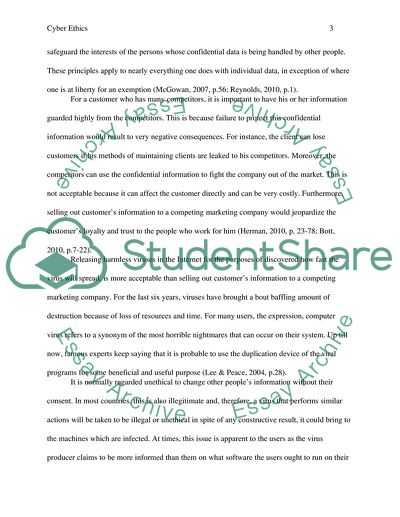Cite this document
(“Ethics in Cyberspace Essay Example | Topics and Well Written Essays - 1000 words”, n.d.)
Ethics in Cyberspace Essay Example | Topics and Well Written Essays - 1000 words. Retrieved from https://studentshare.org/information-technology/1448872-ethics-in-cyberspace
Ethics in Cyberspace Essay Example | Topics and Well Written Essays - 1000 words. Retrieved from https://studentshare.org/information-technology/1448872-ethics-in-cyberspace
(Ethics in Cyberspace Essay Example | Topics and Well Written Essays - 1000 Words)
Ethics in Cyberspace Essay Example | Topics and Well Written Essays - 1000 Words. https://studentshare.org/information-technology/1448872-ethics-in-cyberspace.
Ethics in Cyberspace Essay Example | Topics and Well Written Essays - 1000 Words. https://studentshare.org/information-technology/1448872-ethics-in-cyberspace.
“Ethics in Cyberspace Essay Example | Topics and Well Written Essays - 1000 Words”, n.d. https://studentshare.org/information-technology/1448872-ethics-in-cyberspace.


